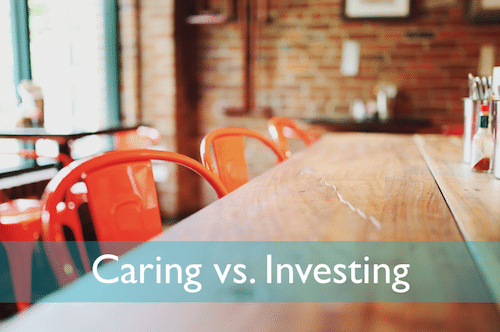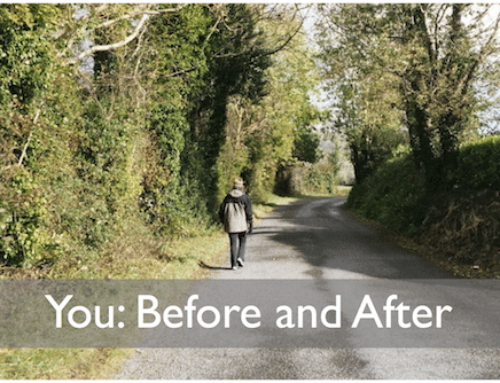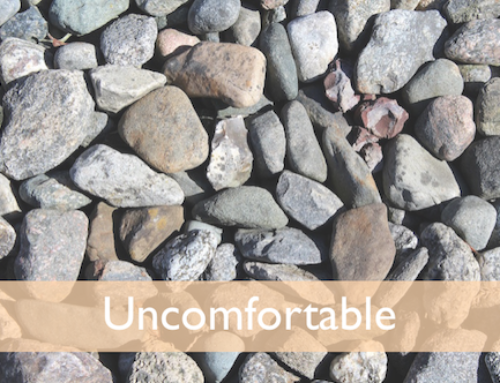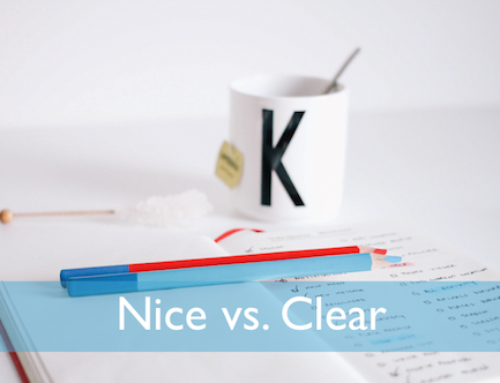I have a brief story for you*. One that might help lighten your load. Starring a smart, accomplished woman** and a major energy leak.
* A true one.
** No, not me, but I do like how that description felt to you like a good match – I’m flattered.
We were two friends squatting at a coffee shop on a sunny L.A. morning and she was telling me…
…that she had reached her breaking point.
Over the past several years, she had expended a lot of time and brainpower trying to get the administrators of the non-profit animal rescue organization that she worked for to implement her innovative suggestions regarding how the organization could function more efficiently, expand its reach, and appeal to a new donor base. She drew up plans, wrote proposals, held meetings.
Alas, she had finally come to realize: they. were. so. not. interested.
For whatever reasons, maintaining the status quo of “business as usual” was absolutely fine with them. It seemed that my friend’s bosses were completely satisfied if she simply did her job and nothing more.
It kind of broke her heart (AND baffled her to no end), but she was now willing to acknowledge that that was the reality of the situation.
After describing the most recent rejection of yet another one of her (genuinely brilliant) ideas, she literally sank into her chair and said: “It feels weird to think that I don’t care anymore.”
Hearing that, my ears perked up – because her declaration was not quite accurate, and that inaccuracy was contributing to her feeling so upset.
“Wait a minute,” I said. “You do still care about the organization, it just sounds like you are deciding to no longer invest in it – which seems like a very wise choice to me.”
Caring about something (or someone) is different than investing in something (or someone).
If my friend didn’t care about the organization she would burn it to the ground*.
* Or leave them in a lurch. Or at least passive-aggressively steal some Post-It Notes.
But she truly cares about the work the non-profit is doing in the world. She cares deeply about the animals and humans the organization serves. She cares that the organization continues to exist. And she cares about having the income from this job.
For the past several years, however, she had made a personal choice to invest her time, energy and money in this non-profit by going above-and-beyond her job description. By trying to innovate. By trying to rally support and Get People To See the possibilities that she clearly envisions for the organization’s future.
By not heeding the first few “red flags” that indicated that this particular administration was not that jazzed about her suggestions, her continued investment created a large energy leak in her life.
The story she was mistakenly telling herself is a story many women tell themselves:
“Going “above and beyond” is what caring looks like. So, if I want to be seen as a caring person, I have to give 110%.”
No.
You can care yet choose not to invest. (You can also invest without genuinely caring*.)
* Someone trying to climb the ladder may invest a lot of time and effort in their job while viewing their current workplace as a mere stepping stone to bigger and better things. This type of person likely wouldn’t think twice of abandoning ship in the middle of a huge project if something better came along.
Are you investing (in people or places) in ways that are becoming (or have already become) substantial energy leaks?
If so, consider withdrawing all or part of that investment.
I know – that can sound easier said than done. If you have identified closely with being seen as someone who is “giving it their all” you might be concerned that some people will interpret your shift in investment to be a shift in caring.
And some people will*.
* Anyone who is telling the “caring = investing” story to themselves will. Anyone who doesn’t want to you rock the boat will. Anyone who is benefiting from you carrying the bulk of the workload will.
But this is about you giving yourself permission to plug an energy leak so that you can re-direct that energy to areas of your life and to activities that will make you feel vital and empowered, rather than resentful and drained.
Once my friend shifted her perspective she immediately felt a sense of lightness and relief because she no longer needed to keep trying to push her chosen boulder up that hill. She saw that withdrawing her investment (a.k.a. “energetically detaching”) from improving (a.k.a. “saving”) the non-profit would not diminish her ability to care for and be proud of the work the non-profit was doing in the world – and the ways her job position contributed to it.
By changing her story from “investing is proof that I care” to “I can care about a lot of people, places and things, yet selectively invest my resources of time, energy and money,” she freed herself to find areas of her life where her investments would be accepted, appreciated, and make a positive impact.
If withdrawing your investment from certain relationships or areas of your life is something you’d like to do, and you would like some guidance about what approach to take, we can certainly have that conversation.
Best always,





